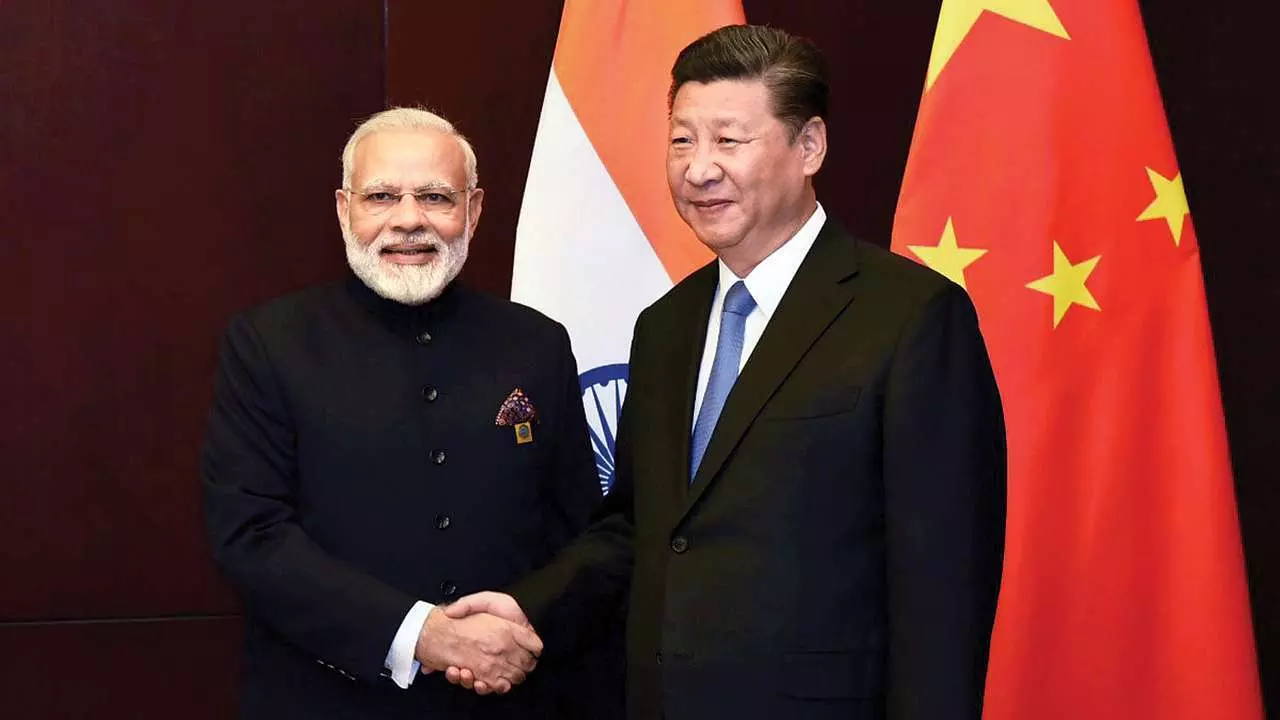
- Home
- India
- World
- Premium
- THE FEDERAL SPECIAL
- Analysis
- States
- Perspective
- Videos
- Sports
- Education
- Entertainment
- Elections
- Features
- Health
- Business
- Series
- In memoriam: Sheikh Mujibur Rahman
- Bishnoi's Men
- NEET TANGLE
- Economy Series
- Earth Day
- Kashmir’s Frozen Turbulence
- India@75
- The legend of Ramjanmabhoomi
- Liberalisation@30
- How to tame a dragon
- Celebrating biodiversity
- Farm Matters
- 50 days of solitude
- Bringing Migrants Home
- Budget 2020
- Jharkhand Votes
- The Federal Investigates
- The Federal Impact
- Vanishing Sand
- Gandhi @ 150
- Andhra Today
- Field report
- Operation Gulmarg
- Pandemic @1 Mn in India
- The Federal Year-End
- The Zero Year
- Science
- Brand studio
- Newsletter
- Elections 2024
- Events
- Home
- IndiaIndia
- World
- Analysis
- StatesStates
- PerspectivePerspective
- VideosVideos
- Sports
- Education
- Entertainment
- ElectionsElections
- Features
- Health
- BusinessBusiness
- Premium
- Loading...
Premium - Events

The much-trumpeted special relationship between India and the US has not been able to do much to provide succour to the dispensation in New Delhi
Surely, but steadily, the winds of India’s foreign policy are changing course. From a US-based Western-centric model, New Delhi is now looking at neighbour China with a friendly gaze.
Apparently “hurt” by the United States’ snub to India on its alleged involvement in the Khalistan hit-job controversy and the indictment of the industrialist Gautam Adani on charges of bribery, a chastened Narendra Modi government in New Delhi has learnt a thing or two the hard way about limitations to its friendship with the West.
India warms up to China
And, to counter the effects of its possible distancing from the US, India’s foreign policy is undergoing a recalibration in favour of China. No surprises that tensions have reduced along the disputed border between India and China in recent months, coinciding with the friction between New Delhi and the US-Canada combine.
Four years after the violent Galwan valley encounter with China, the last of the sticking points was resolved in October this year – with both troops disengaging and resuming patrolling along the Line of Actual Control in Depsang and Demchok in the sensitive Ladakh region.
Also read: As cold air blows from the West, Modi turns to China for warmth
Confirming that a pro-China wind is blowing in New Delhi, National Security Adviser Ajit Doval is currently on a visit to Beijing as part of the Special Representatives meeting of both countries to try resolve the long-pending border dispute.
The dispute is too complicated for a quick resolution, but the optics of the Special Representatives of the two countries meeting, after five long years, is another sign that relations between the two giant neighbours is on the mend.
Feud with Canada
It’s not easy for India, and has never been, in deciding who its real friends are in the international arena. Unfortunately, New Delhi has been unable to set the narrative. Instead it is constantly forced to react to emerging developments.
Take the first instance of the killing of the Khalistani activist Hardeep Singh Nijjar in 2023 in Canada. In September last year, relations between India and Canada nose-dived following the alleged involvement of India in the killing. Prime Minister Justin Trudeau made no effort to first raise the issue through back channels. He made the surprise allegation in the form of a very public and official announcement in the Canadian Parliament, no less.
Soon, Washington got into the picture with the claim that there had been an attempted assassination in the country of another Khalistani activist Gurpatwant Singh Panun. The attempt to kill him was aborted by federal agents but the allegation that Indian intelligence was behind it riled New Delhi.
US fails to be friend in need
If the Modi government calculated that its close friendship with the US would help neutralise the allegations that did not happen. In fact, the Five Eyes nations – the US, Canada, the United Kingdom, New Zealand and Australia – which share intelligence stood by each other, categorically and publicly. This left officials in New Delhi red-faced.
Canada is now pointing fingers at Home Minister Amit Shah while media reports in that country have dragged in Prime Minister Narendra Modi as allegedly being in the know of the Nijjar killing. The Indian government has denied both allegations, but the charges have proved embarrassing.
Also read: What's troubling about allegations of India’s hand in killing of Khalistani activists in Canada
And, more recently, US authorities indicted top Indian industrialist Adani and seven others for their alleged role in the $265 million bribery issue in a solar power supply deal in India. Though the bribes had allegedly been paid in India, US enforcement moved against it as the Adani group had raised funds from American investors for the project.
The allegations involving Gautam Adani, considered the industrialist most favoured by the incumbent Modi government, has again caused discomfiture to New Delhi.
Beginning of acrimony?
The much-trumpeted special relationship between India and the US has not been able to do much to provide succour to the dispensation in New Delhi.
A miffed Modi government has done what could possibly irritate the US administration – cosying up to China. Over the last few years, the US had been priming India for a role that would challenge Chinese hegemony in the region, as part of a growing global rivalry between Washington and Beijing. The resurgence of a defunct Quad (during the first term of US President-elect Donald Trump) was a clear signal to this effect.
Also read: George Soros has no proven track record of destabilising governments
The Indian ruling establishment, meanwhile, has responded vociferously to the US allegations, especially since the Opposition Congress party has led a heated protest against the indictment, alleging a close link between Modi and Adani.
Senior politicians in the ruling BJP have in turn alleged proximity between the opposition Congress and the world’s backer of liberal democracy, the philanthropist-businessman George Soros. The BJP has used this alleged link to point fingers at the US state department, accusing it of meddling in Indian affairs through Soros and India’s Congress party.
From friend to foe
These allegations, which accuse the US’s so-called “deep state” of colluding with India’s Congress leadership including Sonia Gandhi and her son Rahul Gandhi to destabilise the government of Narendra Modi, would have been unthinkable even a few months back.
That the US has turned from a friend into a villain is, by far, the latest indication that relations between New Delhi and Washington have touched a new low. The US embassy in New Delhi, not surprisingly, expressed “disappointment” that the ruling BJP would make such accusations.
Also read: India and US polls | With Trumpification of American policy, who wins may not impact India much
If the Indian foreign policy establishment calculated that New Delhi was indispensable for Washington in the context of US’s rivalry with China, the latest instances have shown that is not the case. On the contrary, the administration in Washington has merely been using India’s own native insecurity and differences with China to bolster the US’s stand-off with Beijing.
New India-China ties and Quad
In other words, the relationship between the US and India is an opportunistic alliance. For India, the US-led Quad (comprising other than these two, Japan and Australia) is a hoped-for bulwark in case China acts hostile. For the US, the Quad arrangement is convenient as it can use the grouping as a cover to make the Indian navy and security establishment do its job in the Indian Ocean and the Pacific, targeting China.
Also read: Putin’s India visit will aim to shape global multipolarity
Logically if India reduces its differences with China, the reliance on Quad will automatically go down. And, it would not be necessary for New Delhi to act as per Washington’s bidding, especially against its will.
For India, in the current scenario, its detente with China is also a natural follow up to its close relationship with Russia, given that Presidents Vladimir Putin and Xi are in a strategic relationship. Relaxing India’s ties with Beijing may not be too risky as Russia can always be requested to intervene in case of necessity.
Risks of current arrangement
But, realigning New Delhi’s foreign policy to suit the current situation does come with risks. The US and its Western allies are deeply entrenched in their relationship with New Delhi. The gamut of cooperation goes beyond politics into the areas of education, immigration and technology.
Already, the tensions with the Modi government have resulted in Canada’s Trudeau government announcing a range of unprecedented restrictions on the entry of Indian students and others for higher studies, immigration and employment.
Also read: Trump win in US gives Canada’s Trudeau much-needed political reprieve
Having shared a zero-tension relationship with India for the last several decades, the current dispute over Khalistani activism and the alleged involvement of Indian officials may well scupper all that has been gained in these years. If anyone expected the differences to just be a blip, that is not the case.
India has, over the years, acquired the reputation of playing foreign policy using the non-aligned guidebook. Except for Pakistan, with which New Delhi is openly hostile, Indian policy takes care not to ruffle the feathers of other countries.
Will Trump change the equation?
Though New Delhi is miffed with Washington, Ottawa and their Western allies to some extent, no further hostilities can be expected. The thaw with China too is a practical response to the changing geopolitical situation. One cannot expect any show of “great love” between the two neighbours, other than pragmatism.
Watch | Trump's win: What it means for India, US and the world
Of course, one man with a reputation for unpredictability can change the existing equations overnight – Donald Trump – when he takes over as US President on January 20. The question is will Trump continue to stand by his neighbour Trudeau, or will he opt to please a distant “howdy Modi”?
Trump is a hard-nosed capitalist. If he helps the Modi government in any way, for favours done, Trump will also force India to downgrade its ties with Beijing. If that happens, New Delhi will be back to square one vis-a-vis China – unless Modi‘s mandarins manage some deft tight-rope walk.


